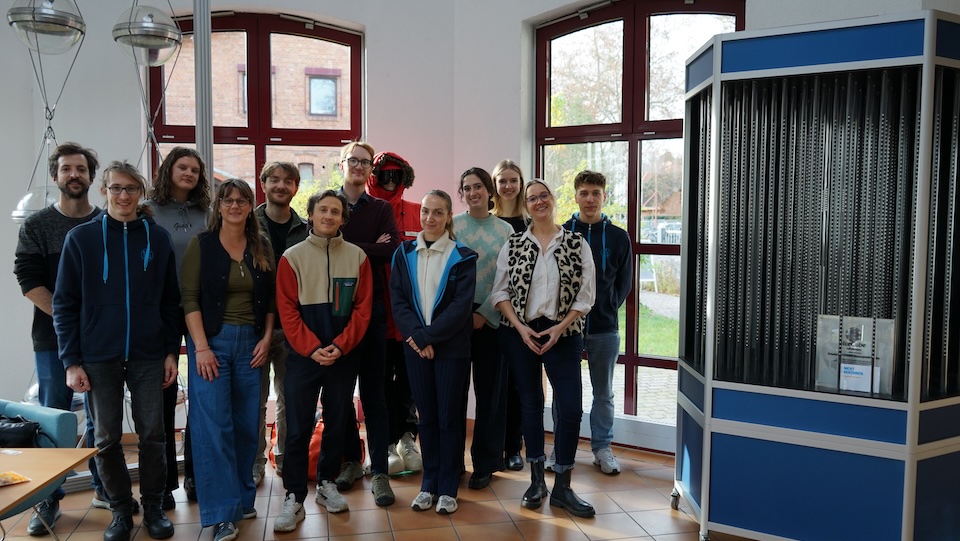International Cosmic Day: cosmic particles connecting young people worldwide
13 November 2025 is International Cosmic Day. It is the 14th time that this annual event invites young people to discover the fascinating world of cosmic particles – elusive messengers from space that continuously rain down on Earth.
Today,13 November 2025, is International Cosmic Day. It is the 14th time that this annual event invites young people to discover the fascinating world of cosmic particles – elusive messengers from space that continuously rain down on Earth. A total of 112 groups in schools, universities, and research institutions in 28 countries across five continents open their doors to young people. Supported and guided by scientists and teachers, students become researchers: they investigate fundamental questions from astroparticle physics, conduct experiments such as measuring cosmic muons and connect globally through joint video conferences to discuss their findings and exchange ideas.
"I am delighted that thousands of young people are taking part in the International Cosmic Day again this year," says Christian Stegmann, DESY Director of Astroparticle Physics. “DESY is proud that this annual event has become a cornerstone in fostering young talent in astroparticle physics.”

For the International Cosmic Day (ICD) 2025, the team at DESY in Zeuthen has prepared additional activities, including a quiz on astroparticle physics. Participants were also invited to take part in the drawing and selfie competition on social media using the hashtag #internationalcosmicday and to share their own creative contributions.
Even groups that are not close to a participating venue were able to join the ICD. The Cosmic@Web platform made by DESY provides access to real experimental data and easy-to-use analysis tools. In the spirit of astroparticle physics, a single experiment provides data for all: students everywhere can explore authentic research questions and contribute their results in many video calls covering the entire day for the different time zones. Throughout the day, participants record their results in a joint publication.
This international collaboration demonstrates how science transcends borders, languages, and cultures, highlighting the unifying nature of scientific inquiry. “By combining experimental practice, international exchange, and creative engagement, the ICD exemplifies an educational format that is both scientifically authentic and pedagogically inspiring,” explains Carolin Gnebner, scientific coordinator of the astroparticle projects for young people at DESY in Zeuthen. “It demonstrates that early exposure to real research can cultivate not only knowledge, but also curiosity, motivation, and a sense of scientific independence.”
The International Cosmic Day is an initiative of DESY in cooperation with the International Particle Physics Outreach Group (IPPOG) and many national and international networks and partners.
